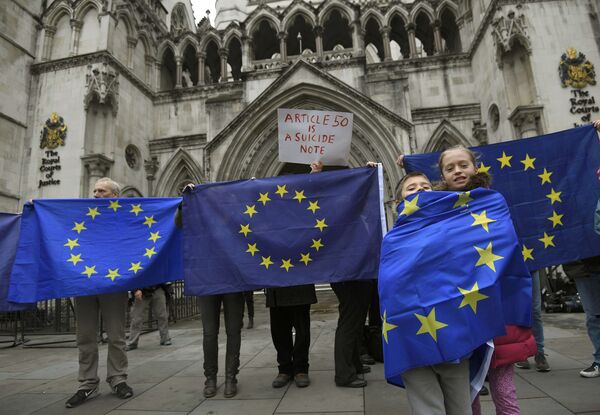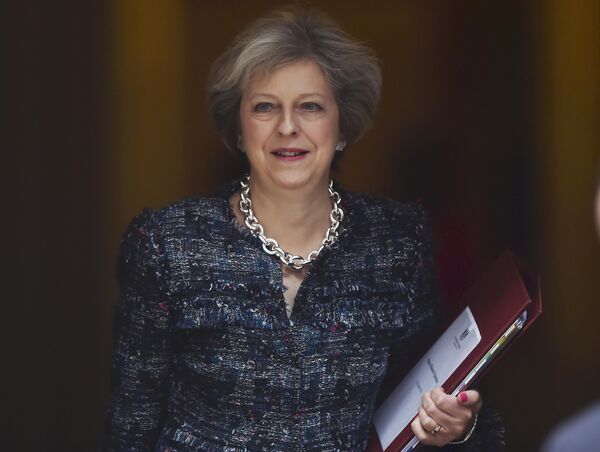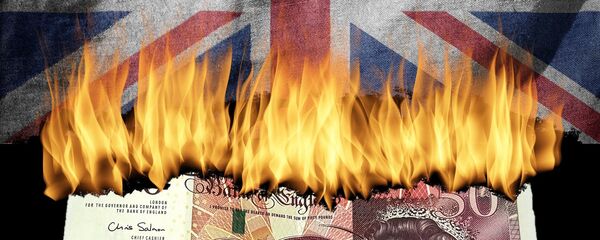Five months later and Brexit Britain is a country locked inside the most far-reaching political, social and looming economic crisis to afflict the country in generations. It is a crisis compounded by the idiocy of a government and political class that is floundering around, attempting to put a brave face on the fact they have no idea — none, nada — when it comes to navigating the Brexit storm they have steered the British people into.
The news that the country's Office of Budget Responsibility, a department set up by the Government to produce independent data on the state of the country's finances, has just announced a £100 billion (US$124bn) shortfall in revenues post-Brexit, tells its own story.
This gigantic financial hole is made up of a fall in tax revenues, a reduction in growth, and a freeze on investment, which taken together constitutes the reality of Britain's exit from the EU rather than the fantasy peddled by its strongest advocates in Westminister.
It comes as a rebuke of the attempt of Britain's post-Brexit Prime Minister, Theresa May, to present an image of calm and assuredness to the country. Her failure in this regard is compounded by the recent ruling of the country's High Court that Article 50 — the constitutional mechanism within the Lisbon Treaty for triggering a member state's exit from the European Union — cannot be invoked without an Act of Parliament.

It is a ruling the British government is in the process of appealing but which has given hope to the rising tide of anti-Brexit sentiment across the UK, supported both by those who originally voted in the referendum to remain in the EU and many who voted to exit, but who have since decided they made a mistake and now wish they had not.
More than anything, Brexit confirms that referenda are dangerous mechanisms by which to determine constitutional change. They are arguably undemocratic in that they offer a simplistic yes/no solution to issues that are loaded with complexity and risk when it comes to social cohesion and the prospect of deep societal polarization.

Democracy is not a winner takes all zero sum game. This is not democracy. This instead is the tyranny of the majority. Referenda on constitutional issues also lend themselves to the rise of demagoguery at the expense of measured and reasoned political discourse and debate.
People such as UKIP's Nigel Farage and British Foreign Secretary Boris Johnson presented people in Britain with a 19th century picture-postcard image of what Brexit Britain would look like in the run-up to the referendum on June 23. It was an image that harked back to the 'glory days' of the British Empire, when the British Navy ruled the waves and foreigners knew their place.
The reality, of course, is that the world has changed; the British Empire no longer exists, except in the minds of the most hopeless Little Englanders, and we now live in an inter-dependent world on the back of a global economy increasingly incompatible with exclusively national solutions to the economic and social challenges it presents.
There is no greater example of this than when it comes to the discourse over immigration.
Within the EU, the free movement of people is a condition of access to the largest single market in the world. However it is now a major fault line within its very foundations — a result of a global economic crisis that merely exacerbated the obscene inequality of a status quo, underpinned by greed and the maldistribution of wealth and resources under the auspices of the liberal establishment.
The problem is that populism not political engagement fueled the discourse surrounding Britain's exit from the EU, wherein xenophobia, nativism, and anti-migrant hostility — which once existed on the margins of society — has achieved mainstream prominence.
However as the British people are finding to their cost, the answer is not to pull up the drawbridge and retreat into national particularisms. Do this and you become a pawn in the game of demagogues who rise on the back of scapegoating minorities, foreigners, and others deemed a threat to the country's cultural values.
Here the lessons of the past must not be ignored. Back in the 1930s, the liberal establishment, likewise, collapsed in similar conditions of economic depression and dislocation. In its place came leaders who promised to make the trains run on time and foment national renewal, rebirth and strength.
We all know what happened next.
The views expressed in this article are solely those of the author and do not necessarily reflect the official position of Sputnik.





